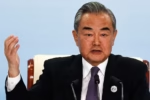The recent US sanctions against the Russian-owned Petroleum Industry of Serbia (NIS) have put immense pressure on President Aleksandar Vučić and Serbia’s foreign policy, exposing years of strategic missteps. The sanctions are aimed not only at limiting NIS’s financial operations but also at curbing Russian influence in Serbia, the region, and the EU.
Key Developments in Serbia’s Geopolitical Landscape:
- NIS Sanctions and Energy Crisis
The sanctions effectively leave nationalization as the only viable solution for Serbia to maintain control over its energy sector. Any delay or false ownership transfers could fail verification by US financial authorities, risking irreversible damage. NIS has reportedly funded Russian operations, including hybrid influence campaigns across Europe, from Moldova to Germany. - Gas Supply Challenges
Plans for a long-term gas contract with Russia fell through. Instead of a three-year deal promised in May, Serbia was offered only a three-month supply until year-end, further complicated by Bulgaria’s announced halt of Russian gas transit starting January 1, 2026. Despite this looming crisis, Serbian media has largely ignored the issue, highlighting the reach of Russian propaganda. - Trade Tensions with China
Increased EU tariffs on steel imports from Serbia threaten Chinese investments, notably the Smederevo Steel Mill. Unlike the US, which previously sold the steel mill for $1 during a global crisis, China’s investments are contingent on access to EU markets, leaving Serbia vulnerable. - Regional Security Setbacks
Serbia’s reliance on Turkey as a secondary foreign policy pillar suffered a blow when Pristina received advanced Turkish drones early, undermining Vučić’s military demonstrations and revealing the limits of Serbia’s arms acquisitions without strong international allies.
Implications for Serbia
The combination of sanctions, energy insecurity, trade disputes, and regional military shifts underscores the failure of Serbia’s current foreign policy. The author argues that only a new political leadership committed to Euro-Atlantic integration and shared democratic values can navigate Serbia out of its strategic impasse. Opportunistic replacements or cosmetic opposition movements are unlikely to succeed.
In short: The NIS sanctions are more than an economic challenge—they expose Serbia’s entrenched geopolitical vulnerabilities, forcing the country to confront its reliance on Russia and rethink its international alliances.







